For my latest artist interview I’m very delighted to have Don Brown, a Japanese film subtitler/translator whose long list of credits include films like Sono Sion’s Tokyo Tribe, Yamada Yoji’s The Little House and Ishii Takashi’s “A Night in Nude : Salvation”, just to name a few. In this Q&A article Don shares with us his journey into the Japanese film industry, the intricacies of subtitling/translation, his inspirations and more.
1) Please tell us a little about yourself.
I’m from Auckland, New Zealand, specifically Waiheke Island by way of Titirangi. I currently live in the city of Yamato in Kanagawa Prefecture, Japan. After gaining a degree in communication studies with a journalism major at Auckland University of Technology and realizing the hard way that I wasn’t cut out for the local media, I decided to take what I thought was my last opportunity to study Japanese full-time and entered at two-year diploma programme, also at AUT.
It was all Japanese all the time, so I was able to acquire functional conversational and reading abilities that stood me in good stead once I moved to Japan in 1999. As a coordinator for international relations on the JET Programme, I worked in local government in Kawachinagano City in Osaka for three years, struggling with the awesome local dialect and making clumsy attempts to adapt to the ways of a bureaucratic Japanese workplace.
After my time on JET was up, I moved to Tokyo and had a lousy time in short stints doing various jobs before landing a 6-month position with the Yamagata International Documentary Film Festival in 2003. Once that finished, I was hired by the New Zealand Embassy in Tokyo as a Public Affairs Officer and stayed there for six years. That also enabled me to tentatively strike out on my own in 2010 as a freelance film translator, and I haven’t been out of work since, so I must be doing something right.
2) How did you find your way into/enter the industry of Japanese film translation ? What was the first Japanese film that you translated, professionally ?
I had to teach myself translation while working for the Kawachinagano City Office, where I was expected to prepare English documents, letters from the mayor, etc. with only an untested grasp of Japanese. It was a steep learning curve, but it gave me the opportunity to develop skills in a very forgiving environment.
My first film-related translation job was working on email newsletters for the Yamagata International Film Festival, which was kindly introduced to me by Asako Fujioka. That led to me eventually moving to Yamagata on a six-month contract in 2003, and later on I met a Tokyo-based Welsh director named John Williams whose company 100 Meter Films was also handling English subtitling work.

He and his then colleague Tsuyoshi Toyama eased me into subtitling, and the first feature I translated was “Goodbye Midori” (Sayonara Midori-chan) by Furumaya Tomoyuki. The next one was “Lady Joker” (image above), which was screened at the Tokyo International Film Festival. That was the first time I ever watched a film I subtitled with an audience, albeit an overwhelming Japanese one, and got to see my name pop up on screen at the end. That’s still a thrill.
3) Kindly step us through, in broad strokes, your working process when embarking on a translation project for a feature film, from start to end.
It begins with an approach from one of my contacts at a film company or subtitling agency, or a referral from an acquaintance. I’m given a finalized script that corresponds with the dialogue as it appears in the completed film, and usually a low quality DVD or image file of the film to work off. The subtitling agency will have broken down the script into subtitle-sized chunks of dialogue and timed them to measure their duration, but if it’s a low-budget indie and I’m dealing directly with the director or producer, I handle those processes myself.
Once I have all the materials, I make a first draft of the subtitles, making sure each one remains within their character limits, based on the length of the dialogue. Films with characters speaking modern Japanese at a normal pace are fairly straightforward, so I can rip through them at a brisk pace, but things like humor, overlapping or interrupted dialogue, and rapid line readings take longer to find a natural translation or fit into the allocated character limits, which slows me down.

(above) Take Masaharu’s “Unsung Hero”. English subtitles by Don Brown.
Once the first draft is done, it’s checked by the subtitling agency and the client, and sometimes the director. They make suggestions and ask questions, and I make changes if it will improve the translation, but if I feel it won’t, I argue why my translation is fine as is. This exchange goes back and forth until we arrive at a version we’re all happy with, and in some cases there is a final “subtitle simulation” in an editing studio where we (myself, subtitle agency staff, and the client) watch the film with subtitles to make absolutely sure it’s satisfactory.
4) In translating period Japanese films (Jidaigeki), where an older form of Japanese is spoken, how do you prepare for it ? Do you do your own research ?
To be honest, I rarely have time before or during a subtitling job to do proper research on my own outside of net searches. With period films, a lot depends on my own knowledge from watching them, so this is one of the few situations where being an avid filmgoer and having a big DVD collection comes in handy. Anything I can’t confirm on my own, I ask the agency and or/client.
At any rate, most clients don’t want subtitles that use totally authentic archaic English, as they will alienate a large proportion of viewers, especially those who can read English subtitles but for whom English is a second language. The difficult thing for me is finding a balance between making the translation suit dialogue spoken by characters in a period, and keeping it easily understandable.
5) What are some of the most enjoyable/challenging film translation projects you’ve worked on, and why?
I always wanted to work in a creative, movie-related field but never thought I could make a living of it, so I still get a big buzz out of any subtitling job I get, even for films that I’d be highly unlikely to pay to see. “Tokyo Tribe” (image below) was a huge highlight, because I got to flex my rap knowledge and work on a Sono Sion film for the first time, which turned out to be one of his most entertaining. I also interpreted for Sono and his cast at the Foreign Correspondents’ Club of Japan, despite my mind being well and truly blown.

Humor is always the most challenging thing to translate effectively, and it really tests your creativity, but I enjoy translating swearing the most. It’s often been said that Japanese has a fairly limited vocabulary of dirty words, so choosing from the wide array available in English for amusing or threatening effect is a hell of a good time.
Ishii Takashi’s “A Night in Nude: Salvation” was probably my finest achievement in that sense. I was able to use words, or rather one specific one, that I’ve never been able to use for any other film. And it was totally appropriate.
6) I understand your had the amazing opportunity to work on the subtitles for Yoji Yamada’s ( Twilight Samurai, The Hidden Blade ) film “The Little House”. What was the experience like ?
Subtitling “The Little House” was a massive deal for me, because I’d watched Yamada Yoji’s films back when I was studying Japanese in New Zealand, and met him briefly while working at the New Zealand Embassy, and then there I was subtitling one of his works.

I also had the opportunity to sit down with Yamada for a subtitle editing session, in which we discussed all sorts of things. I’ve been lucky enough to meet a few directors I admire, and some of them were as unfriendly as I’d expected, but Yamada was incredibly gracious to me for a man of his stature.
7) During the course of your translation work, what do you do when you encounter instances when a direct/honest translation of a Japanese line/phrase into English results in it losing their intended meaning or nuance ? How do you juggle between preserving the integrity of the filmmaker’s original dialogue and translating something that would be meaningful to the English audience ?
The tricky thing is, translators don’t always deal directly with directors, so we often have to follow the lead of producers or film company staff when deciphering the nuance of a specific line. As a freelancer with no backing apart from my track record, I have to stay assertive and protect the quality of my work, but I also do my best to stay open to suggestions and “kill my darlings” if it improves the subtitles. I can’t stand subs that are primarily expressions of the translator’s ego, which is something you often see in Japanese subtitles of English-language films.
Character limits will often prevent you from using a perfect translation and require the omission of less essential data, so compromise often plays a big factor in deciding how the final subtitle ends up. Often in subtitling, the test of a translator’s skill is in knowing what information is acceptable to leave out, as much as knowing what must be retained.
8) What are some of your favourite films/directors, both Japanese and international ?
Back when I was living in New Zealand, I got switched on to Kurosawa Akira by watching his films on television, and was captivated by the metaphysical-era works of Ishii Sogo (now Ishii Gakuryu), “Angel Dust” and “August in the Water”, at the annual film festival. Harada Masato’s “Kamikaze Taxi” and Otomo Katsuhiro’s “Akira” also had a large impact on me.
After coming to Japan, I became a big fan of Kurosawa Kiyoshi and Sabu, and made the most of access to older films. Okamoto Kihachi, Kobayashi Masaki, Tanaka Tokuzo, and Masumura Yasuzo are some of my favorite Japanese directors. Lately I’ve also been following Shiraishi Koji’s creations.
Internationally, my favorite living director is probably Lee Chang-dong. Not a huge filmography, but every one a true masterpiece. I don’t watch Asian films exclusively, but my viewing in the last few years has included a lot of South Korean cinema. (below) Lee Chang-dong’s “Secret Sunshine”.

I’d be remiss if I didn’t mention New Zealand films too, like Geoff Murphy’s “Utu”, Merata Mita’s “Mauri”, Vincent Ward’s “Vigil”, and Robert Sarkies’ “Out of the Blue”. As it’s a small country, there aren’t a lot of films made, but every few years a real gem emerges. Right now, I’m looking forward most to Toa Fraser’s “The Dead Lands”.
9) What advice would you give to someone that wish to enter the Japanese to English film translation industry ? What skill sets, beside an excellent command of the Japanese language do you think are necessary to become a good film translator ?
Visa status is a big one. Subtitling is a freelance profession, so unless you already have Japanese citizenship, you either need a day job that gives you the necessary residence qualification, or a spouse visa from marrying a Japanese national. The latter applies to me, as it does to most subtitlers I know.
Command of the English language is obviously important too, and I mean that in the sense of being able to write to a professional standard. Just being a native speaker or having reasonable fluency isn’t enough, and it’s instantly detectable.
There’s one other specific attribute that often gets ignored by people studying film translation, or even filmmaking, which is watching a lot of movies, and different kinds at that. You’d think that would be so obvious it wouldn’t be worth stating, but it’s sadly taken for granted. There are much better paying occupations out there, and fields of translation too, so why put up with all the aggravation and uncertainty of being a freelance film translator if you don’t love movies enough to spend your time and money on them?
To learn more about Don’s portfolio of translation work, visit www.donbrown.jp. You can also follow him on twitter.
2

 Japanese Film Festival 2008
Japanese Film Festival 2008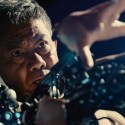 Inuyashiki Live-action Film Trailer
Inuyashiki Live-action Film Trailer Not enough films
Not enough films Rampage Japanese Poster Art By Kouji Tajima
Rampage Japanese Poster Art By Kouji Tajima Shadow – Zhang Yimou Film Trailer
Shadow – Zhang Yimou Film Trailer



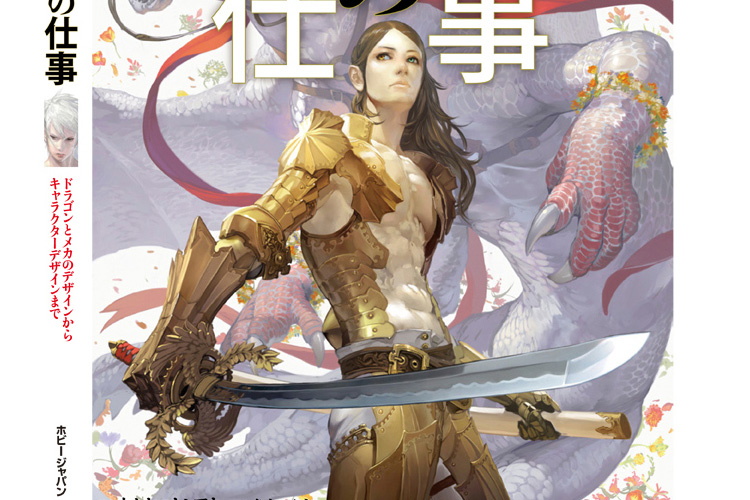

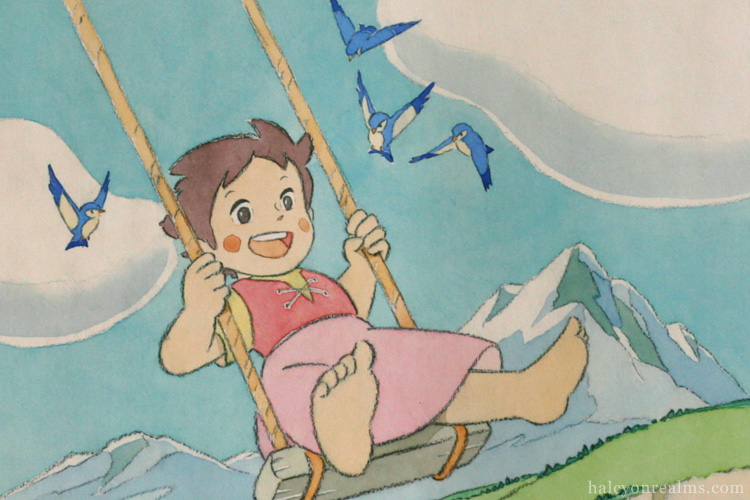
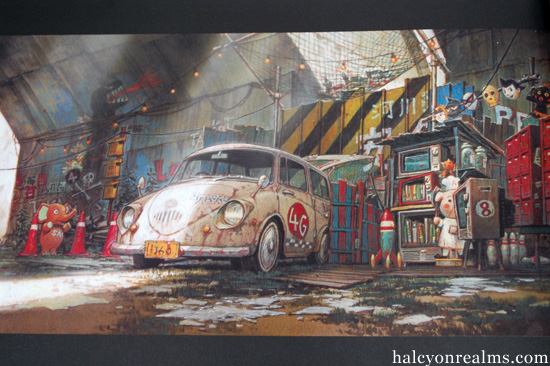
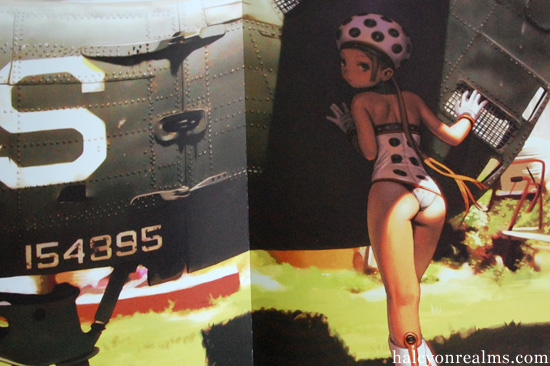
October 2nd, 2014 at 4:13 am
Very interesting interview, i´m gonna check out some of the movies mention in the interview.
By the way i´m sending you an link of a article about a mural done by Katsuhiro otomo.
http://en.rocketnews24.com/2014/09/29/akiras-katsuhiro-otomo-to-design-huge-mural-for-sendai-airport/
October 2nd, 2014 at 11:06 pm
FAS – Thanks for the link to the Otomo article, I had it bookmarked too and was thinking of doing a post on it with any extra information and images I can find. :]
October 24th, 2014 at 10:44 pm
I missed this interview post somehow, only noticed it now that someone retweeted it…
I’m always happy to see the subtitler’s name pop up on the screen, and more so if it’s a name I recognise. Like Don Brown when I watched Iya no Monogatari and Jason Gray for Kakegae no Nai Basho!
October 27th, 2014 at 11:08 pm
Alua – Me too, like when I see Darcy parquet’s name when I watch Korean films, although I don’t know him personally.